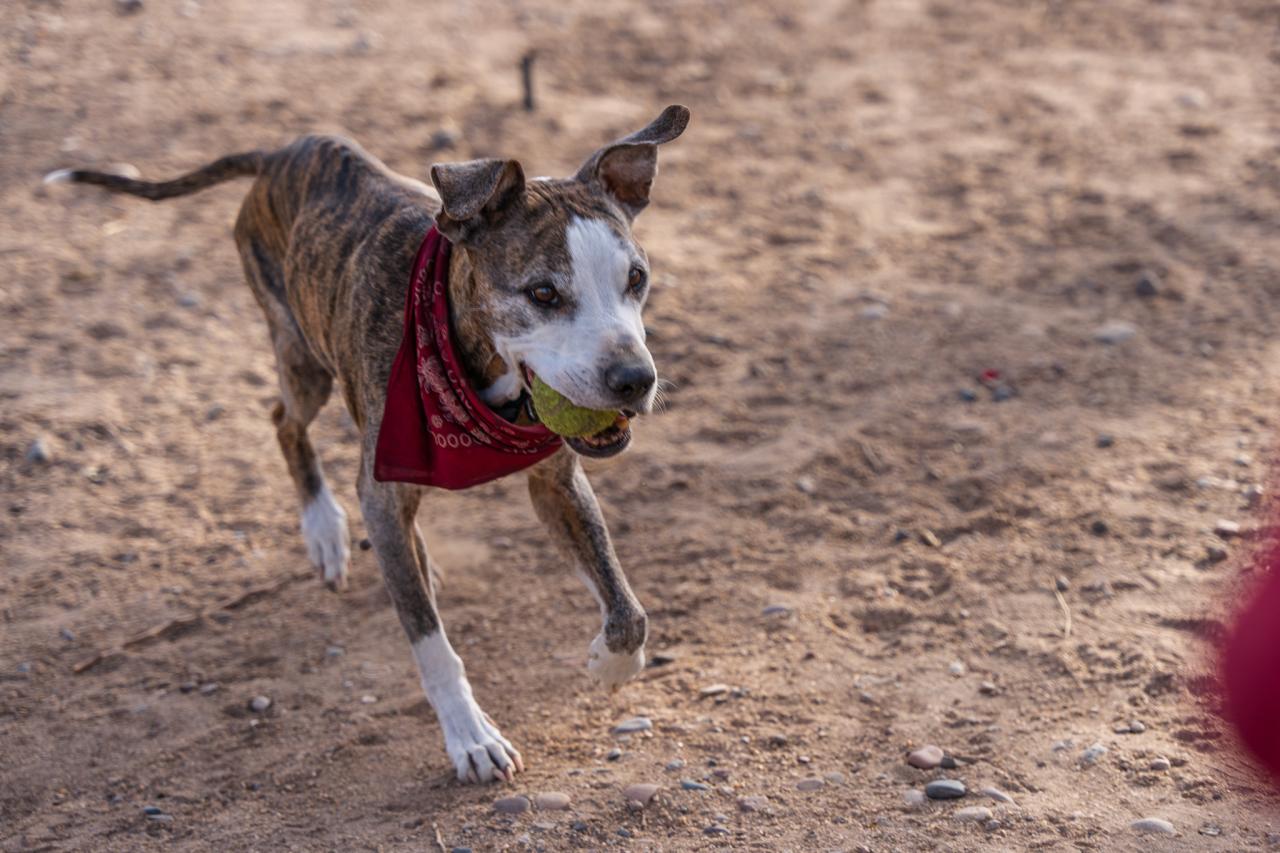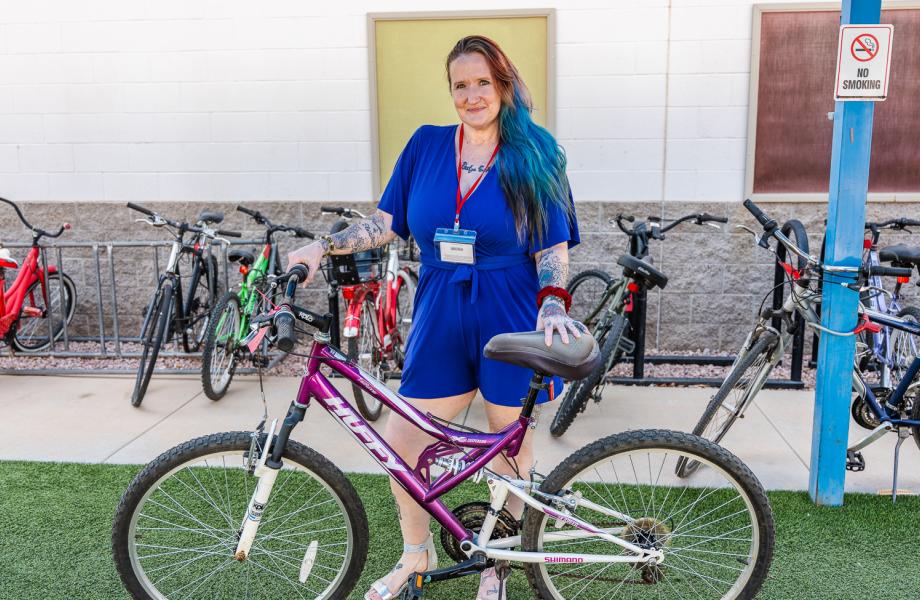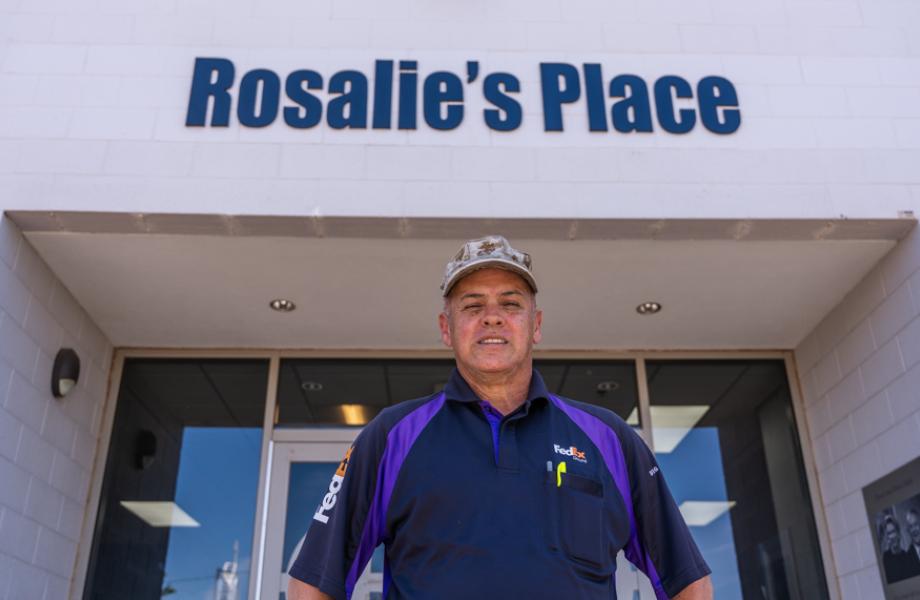Caring for man and his best friend
After losing his sight, Vernon Wedge lost his job, his savings, then his home. His only companion through it was his dog Roscoe, who never left his side. After some time on the street, he found his way to St. Vincent de Paul where he’s been able to finally catch his breath, rebuild his life and care for Roscoe while keeping him by his side every step of the way thanks to SVdP's Companion Animal Program (CAP) and animal-friendly transitional housing.
For years, Vernon had steady work as a security guard for a department store. He was in the back, keeping his eyes on the surveillance cameras. He was known for his sharp eyes, and over the course of his career, caught hundreds of shoplifters.
Originally, he had no desire to have a dog, but when his son was in high school, he came up with a plan...
"I always told my kid that I was too old to have a dog and I didn't want one," Vernon said. "Then one day, he went across the street and fell in love with Roscoe and played the game of, 'Let's buy him first and take him home and show dad and dad will fall in love with him,' which I did. He's been worth it. He's my buddy."
For more than 10 years, Roscoe has been an important part of Vernon's life. “He loves being outside and playing ball, but other than that, he'd rather just bury himself in your clothes.”
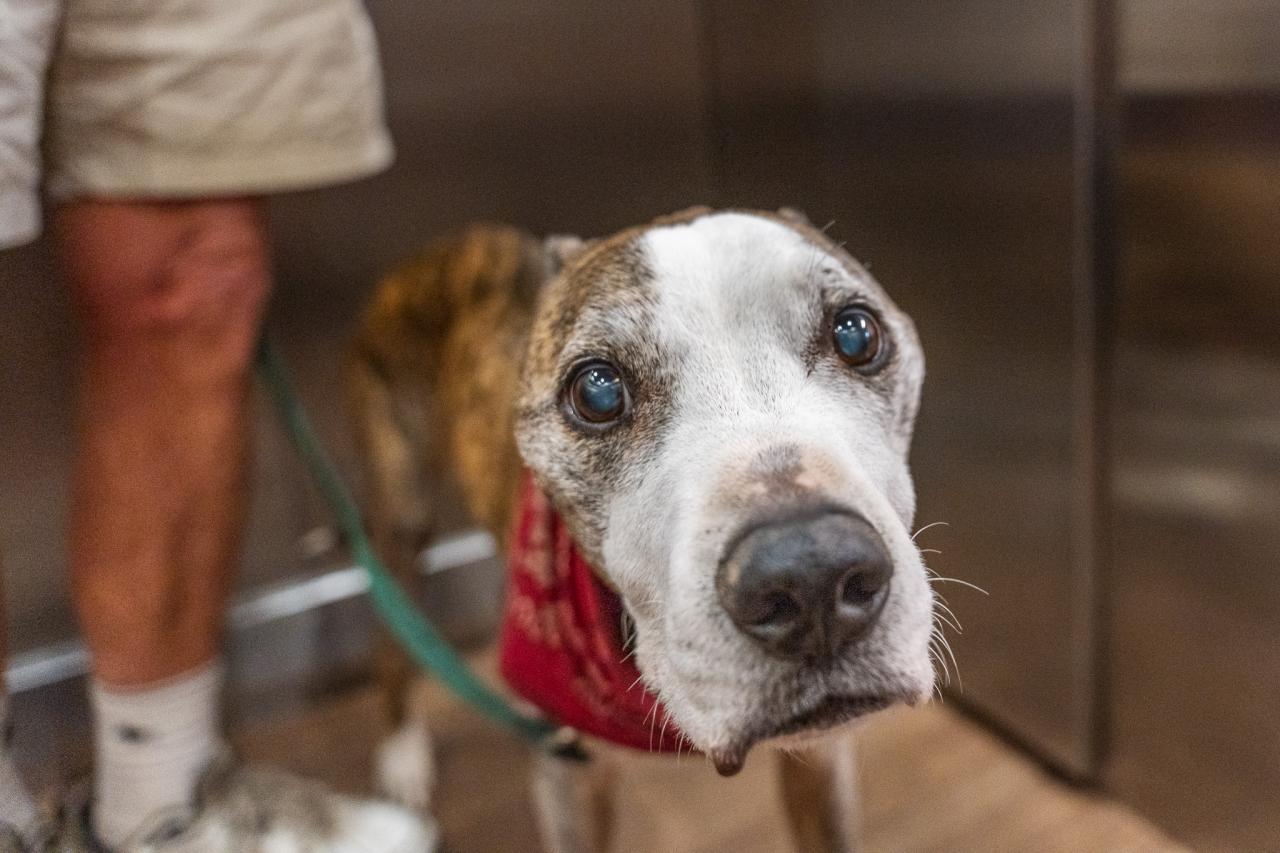
Life for Vernon and Roscoe was good and stable until about two years ago, when everything was upended by an unexpected health complication.
Vernon had started to notice that his eyes were becoming less sharp. After some exams, his doctor told him that he not only had severe cataracts, but that he had a condition known as macular degeneration, a condition which affects the retina and causes major vision loss. In effect, Vernon was going blind, and worst of all, there is no cure.
Vernon worked his job as long as he could, but there came a point where he couldn’t see well enough to watch the monitors.
“I had to quit my job,” he said. “That wound up sucking all my 401(k) money, and I had some unemployment, and DES helped me out for a few months, and I was trying to look for a job — but without my eyes, there’s not a whole lot I can do.”
It came to the point where Vernon didn’t even have enough money to pay for his rent, and he was evicted from his apartment of more than 10 years. Some of his kids were in unstable situations themselves, and others already had elderly family members living with them.
Vernon didn't want to be an additional burden, so he and Roscoe took to the streets.
They survived together by spending most of the day at parks, then spending the night at a local church. But through it all, Vernon and Roscoe had each other. Their stint of homelessness lasted for a year until a partner organization linked Vernon with SVdP’s Ozanam Manor transitional shelter.
However, at first Vernon was skeptical because most shelters don’t allow people’s pets to accompany them, but Vernon didn’t have anything to worry about because SVdP is welcoming of guests’ pets. That's where CAP helps by providing care and access to resources for the pets of people experiencing homelessness or at risk of homelessness. CAP's goal is to keep people and their animals safe, cared for and sheltered together.
“More often than not, guests aren't willing to let go of a companion animal. This is their last resort, their last love that remains with them, and they don't want to leave that animal — that dog, that cat — so they’re willing to not go into a shelter,” said CAP Manager Alberto Diaz. “It's been great and wonderful that we have been able to provide that shelter space.”
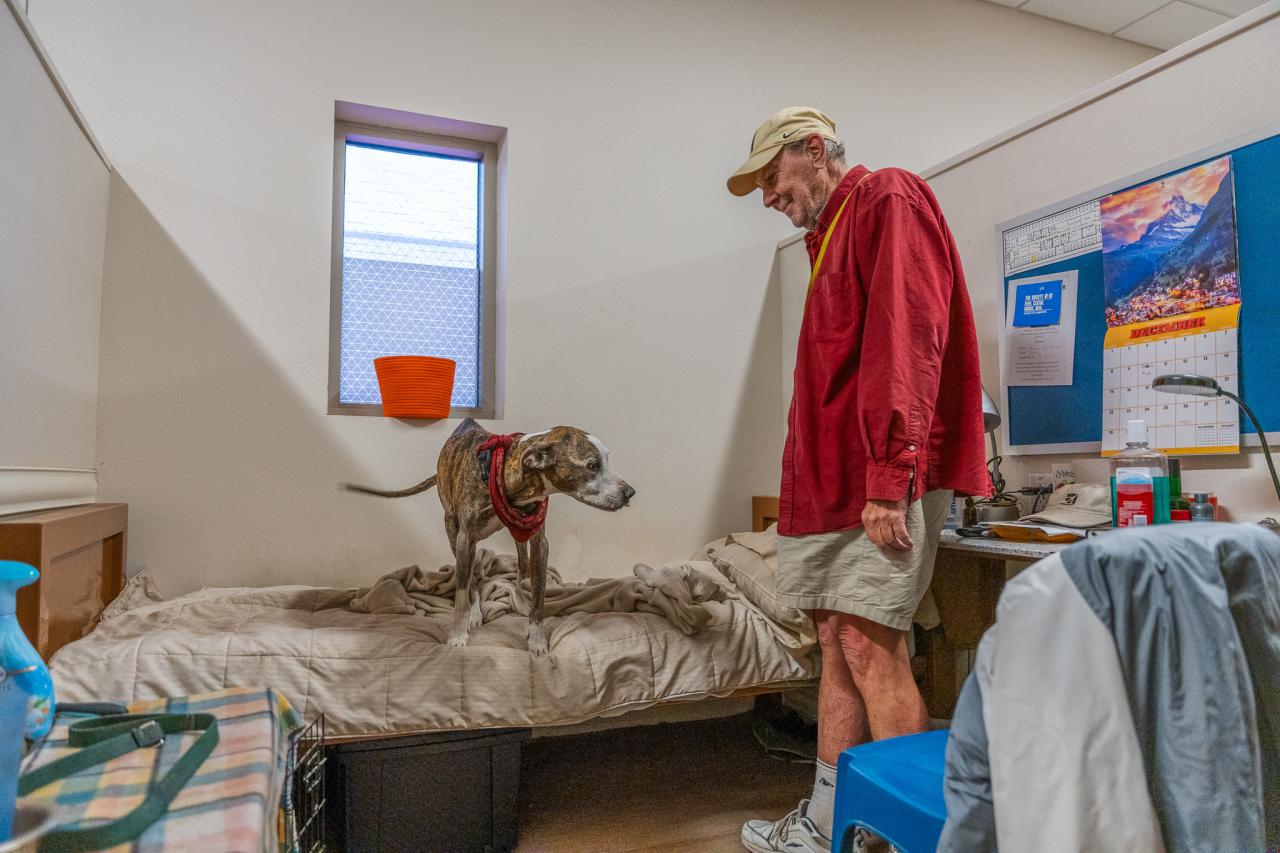
CAP helps guests with all aspects of keeping their best furry friends happy and healthy, from providing dog and cat food in the shelter, to making appointments with veterinarians and providing transportation, to having a large animal health clinic every quarter where community partners come to give out pet resources to anyone in the community who needs them.
“I got a bed, clean bathrooms, and three meals a day… and him,” Vernon said, pointing down at Roscoe.
When Vernon and Roscoe first moved in, CAP was able to help Vernon by getting him pet supplies, like a kennel, bed, treats, leash, as well as getting Roscoe updated on his vaccines, licensed, and even certified as an emotional support animal.
“I now understand the true meaning of the term emotional support,” Vernon said, reflecting on how Roscoe has been there for him through every step of their difficult journey.
Now that Vernon and Roscoe are in a safe, stable environment, Vernon has been able to focus on recovering his health and apply to apartments that he and Roscoe can make their long-term home.
It has been a few months since they first came to Ozanam Manor, and the process of finding a stable housing situation can often take a long time. Vernon’s only source of income is $1,750 from his monthly social security, and it’s difficult finding a place that can be afforded on that, but Vernon has faith that they’ll find a suitable home soon.
His only requirement for the apartment? That there be a place that he can take Roscoe on walks and play fetch.
